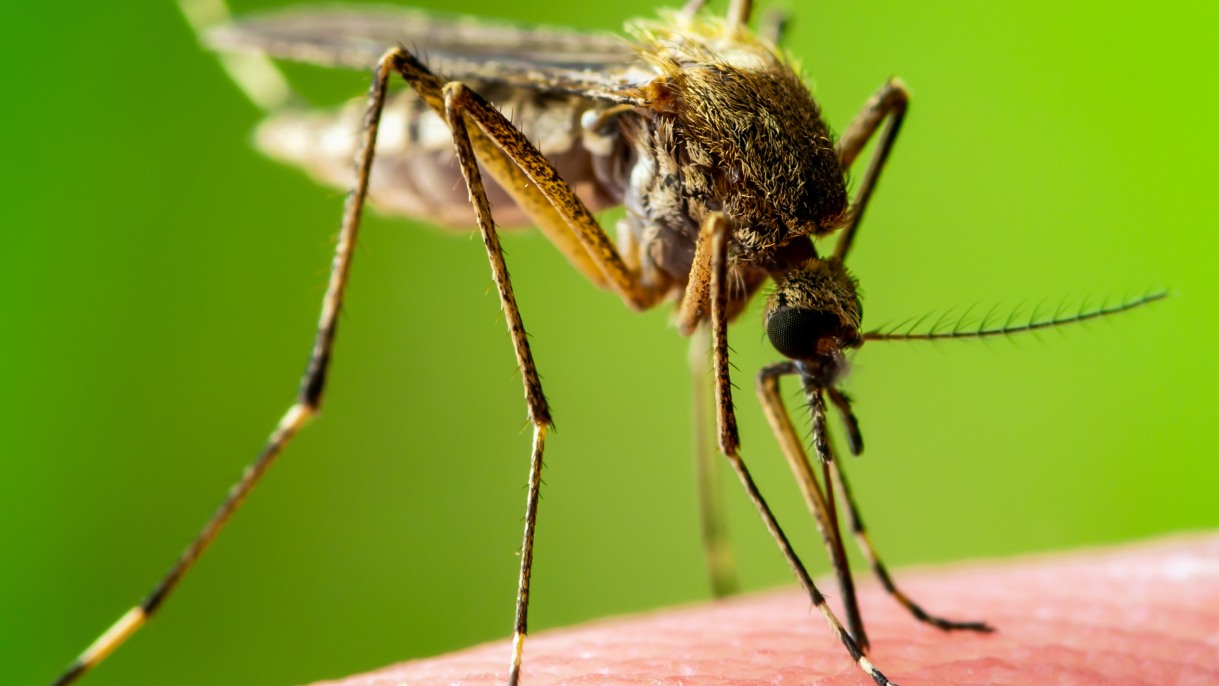West Nile Virus (WNV) is a mosquito-borne disease that is often diagnosed a while after infection. Compared with dengue fever, individuals infected with the West Nile Virus often show minor to no symptoms, making the diagnosis a bit tricky.
This infection predominantly affects people in the continental U.S. and can spread during the mosquito season, from summer until fall. Currently, there are no developed vaccines that offer protection from WNV.

Topics Covered
Causes of West Nile Virus
The spread of the West Nile Virus to humans occurs via infected mosquitoes. These mosquitoes carry the disease once they feed on infected birds. The incubation period starts from two days and can last up to 14 days.
West Nile Virus can also be spread via other methods. Several early studies have shown that the virus can be spread through blood transfusion and organ transplantation. However, these modes of transmission are rarely seen because most donors now undergo screening for the virus. There are also claims that it is also possible for the virus to be transmitted from an infected mother to a child during pregnancy or breastfeeding. However, further studies must be done to support this claim.
Symptoms of West Nile Virus Infection
As mentioned, people bitten by West Nile mosquitoes often don’t exhibit signs and symptoms that they have the disease. As many as 8 out of 10 people don’t show any symptoms, and about 20% complain of flu-like symptoms such as:
- Fever
- Headache
- Body pains
- Nausea
- Vomiting
- Diarrhea
- Rash
Often, these people would recover even without any intervention. But, there are also instances when the virus can cause serious problems that may lead to death. More specifically, the infection can reach the central nervous system enough to cause brain inflammation or swelling of membranes surrounding the spinal cord and the brain. Initial symptoms can include:
- High-grade fever
- Neck stiffness
- Disorientation
- Confusion
- Convulsions
- Muscle weakness
- Vision loss
- Paralysis
Serious presentation of the disease can affect individuals of any age but are more commonly seen in older adults aged 60 and above, particularly those with comorbidities such as diabetes, kidney disease, hypertension, and cancer.
People with serious cases of WNV can still recover, but most of those with central nervous symptoms may have to deal with permanent symptoms.
Treatment of West Nile Virus
Currently, there are no known treatment options for patients infected with West Nile Virus. There are also no available vaccines to help prevent its spread. Often, patients showing signs and symptoms of the disease require supportive treatment. This means that patients can be given antipyretics to lower body temperature. They can also be prescribed to take over-the-counter pain relievers to alleviate pain symptoms.
In patients with severe cases of West Nile Virus, hospitalization may be necessary. In this case, their treatment options would involve receiving intravenous fluids, IV pain meds, and nursing care.
When Should You See a Doctor
Patients with suspected cases of West Nile Virus often delay their consultations because of the absence of any alarming symptoms. However, patients who may have a high-grade fever and a history of travel to high-risk areas may want to consult their specialist.
How to Prevent West Nile Virus
The best way to prevent the West Nile Virus infection is to limit exposure to mosquitoes and eliminate possible areas where mosquitoes may breed and spread.
Here are some precautionary measures to follow:
- Clean your roof gutters so no mosquitoes can breed there.
- If you have an unused pool, remove the water or cover it up with pool covers.
- Regularly change the water of your pet bowls and birdbaths
- Dispose of old tires and containers that can hold water that may become a breeding ground
- If you are propagating plants in water, change the water every day.
- Put screens on your windows and doors.
- If you live in the Los Angeles area infested with mosquitoes, have a Baton Rouge mosquito control service assess your location to identify possible solutions.
If you want to limit your exposure to mosquitoes, some practices to adhere to include:
- Limiting your time outdoors when mosquitoes are most active, which is usually during dawn and early evening.
- If you need to go outdoors, wear long-sleeved shirts and long pants.
- Use an Environmental Protection Agency (EPA) approved insect repellent whenever you need to go outside. Use a concentration level depending on your requirements. If you need to stay outdoors longer, you may need to choose one with a higher concentration of an active ingredient.
While West Nile Virus may not be as severe as other mosquito-borne diseases, it can still cause severe illnesses for high-risk populations. Diagnosis can be tricky, so make sure that you always factor in your exposure. Consult your doctor whenever necessary before symptoms get worse.




